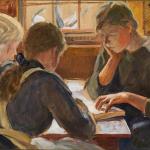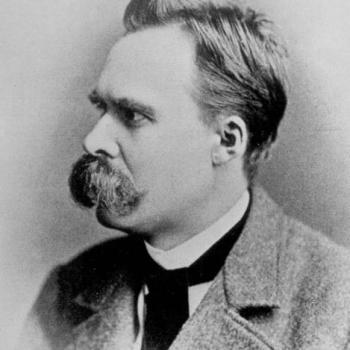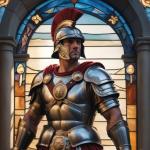 Some observers believe the Supreme Court’s ruling in the Masterpiece Cake case will do little to protect religious liberty. If government agencies are simply more polite about the way they talk about religion, the ruling implies, they can discriminate against religion all they want. Justice Kennedy’s majority opinion does give that impression, but it also forbids anti-religious bias and double standards. And most threats to religious liberty today involve anti-religious bias and double standards.
Some observers believe the Supreme Court’s ruling in the Masterpiece Cake case will do little to protect religious liberty. If government agencies are simply more polite about the way they talk about religion, the ruling implies, they can discriminate against religion all they want. Justice Kennedy’s majority opinion does give that impression, but it also forbids anti-religious bias and double standards. And most threats to religious liberty today involve anti-religious bias and double standards.
In his ruling, Justice Kennedy chastized the Colorado Civil Rights Commission for disparaging the baker’s faith as “despicable.” But that wasn’t all. “Another indication of hostility is the different treatment of Phillips’ case and the cases of other bakers with objections to anti-gay messages who prevailed before the Commission.”
A supporter of Jack Phillips, the Christian baker who refused to bake a wedding cake for a gay wedding, went to other bakers, ordering cakes in the shape of a Bible decorated with the verses “God hates sin. Psalm 45:7” and “Homosexuality is a detestable sin. Leviticus 18:22.” The bakers refused to do it. And the Commission refused to hear the complaint against them. Bakers are free to refuse to serve a customer if they disagree with his message. Unless you are a Christian baker who opposes same-sex marriage. Justice Kennedy considered this double standard to be a proof of anti-religious bias.
As attorney and columnist David French points out, the ruling, in forbidding bias and double standards, can be very helpful in religious liberty cases. “Kennedy did give people of faith a lasting gift. He rebuked one of the more common and vicious leftist talking points — the claim that ‘religious liberty’ is a mere pretext for bigotry.” And the court’s opposition to anti-religious double standards is already being cited in a religious liberty case.
Wayne State University has refused to recognize InterVarsity Christian Fellowship on the grounds that its bylaws require the campus ministry’s leaders to be Christians. This is said to violate the university’s anti-discrimination rules.
But Wayne State makes exceptions to its discrimination rules all the time when it comes to student organizations! The leadership of women’s sports clubs can be restricted to women. African-American groups can require African-American leaders. There can be all male fraternities and all female sororities. The only groups not allowed to require that their leaders fit the nature of the group are Christian groups!
InterVarsity’s lawsuit is invoking the Masterpiece Cake decision, arguing that the double standard is evidence of hostility and thus discrimination against religion.
This editorial gives similar examples. In Washington state, the Attorney General used anti-discrimination laws to prosecute a florist for refusing to provide flowers for a gay wedding. But when a coffee shop refused to serve an anti-abortion group and mocked them for their beliefs, the Attorney General did nothing.
In Washington, D.C., the transit commission refused to allow advertisements for Christmas services on the Metro, even though it allowed other kinds of Christmas advertising.
The Masterpiece Cake decision would seem to apply, especially since religion–along with race, gender, and sexual preference–is a “protected class” under anti-discrimination statutes.
Illustration by Merio via Pixabay, CC0, Creative Commons
 Some observers believe the Supreme Court’s ruling in the Masterpiece Cake case will do little to protect religious liberty. If government agencies are simply more polite about the way they talk about religion, the ruling implies, they can discriminate against religion all they want. Justice Kennedy’s majority opinion does give that impression, but it also forbids anti-religious bias and double standards. And most threats to religious liberty today involve anti-religious bias and double standards.
Some observers believe the Supreme Court’s ruling in the Masterpiece Cake case will do little to protect religious liberty. If government agencies are simply more polite about the way they talk about religion, the ruling implies, they can discriminate against religion all they want. Justice Kennedy’s majority opinion does give that impression, but it also forbids anti-religious bias and double standards. And most threats to religious liberty today involve anti-religious bias and double standards.











